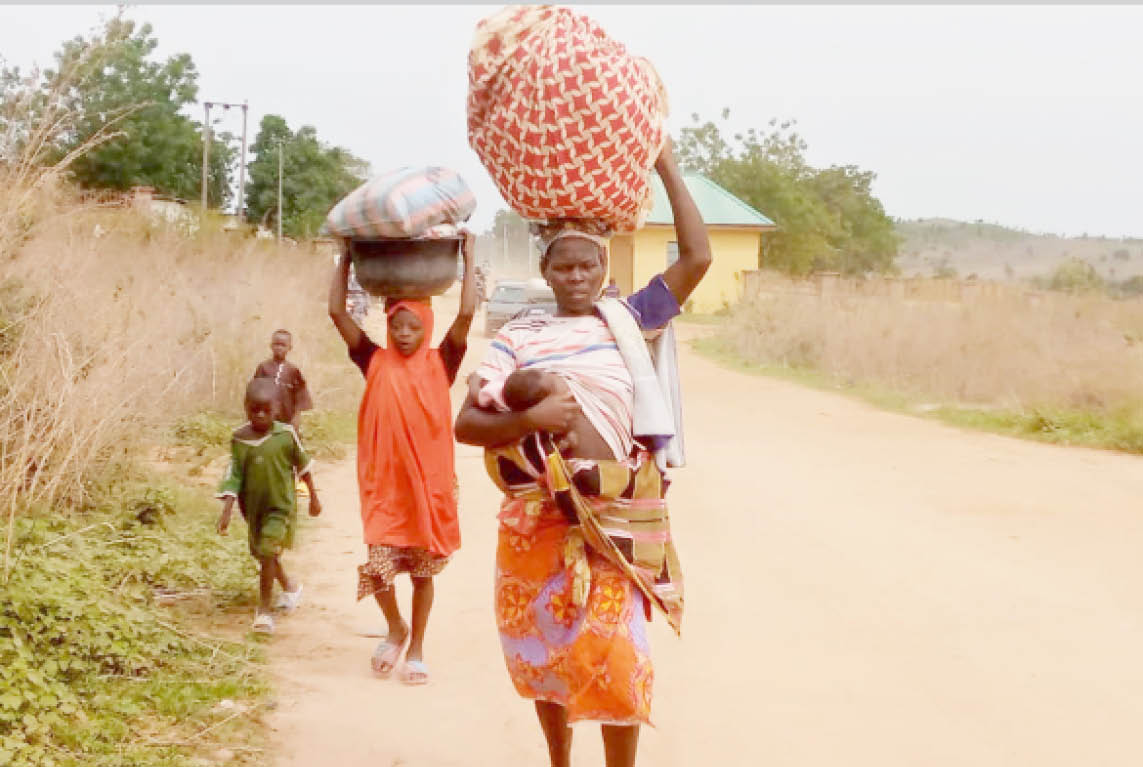Nigeria’s agricultural sector is facing unprecedented challenges. The convergence of natural and human-induced disasters – flooding, drought, banditry, and a rise in petroleum prices threatens to undermine the country’s food security. Each of these factors has its distinct impact, but their simultaneous occurrence presents a compounded risk that could lead to widespread food shortages, increased poverty and social instability.
Flooding, which has become more severe due to climate change, poses a significant threat to Nigeria’s agricultural productivity. The 2024 cropping season is already witnessing widespread flooding in key agricultural regions. Floodwaters have inundated large swathes of farmland, destroying crops that were close to harvest. This not only reduces the immediate availability of food but will also affect future planting seasons due to soil erosion and nutrient loss.
The loss of crops like rice, maize, sorghum, millet and vegetables, which are staples in the Nigerian diet, could lead to food shortages and increased prices. Moreover, the displacement of farming communities due to flooding is disrupting the agricultural cycle, making it difficult for farmers to replant or manage existing crops. The long-term effects will reduce productivity and cause a decline in food supply that can aggravate food insecurity.
While some regions of Nigeria battle floods, others are grappling with drought. The northern parts of the country, particularly in the Sahel and Savannah regions, have experienced prolonged dry spells, severely affecting rain-fed agriculture. Cereal crops that are vital to the diet and economy of many have become vulnerable. The lack of adequate rainfall not only reduces crop yields but also leads to poor quality harvests that further reduce the food supply.
- Stop patronising Pastor Fufeyin’s ‘miracle’ water, soap, NAFDAC warns
- 48 people, 50 cows killed in Niger road accident
Drought also has a significant impact on livestock farming, which is a major livelihood in northern Nigeria. The scarcity of water and grazing land will reduce livestock productivity and lead to lower meat and milk production. This will not only affect food availability but also the income of pastoral communities, further worsening poverty and food insecurity.
In addition, drought may lead to conflicts over scarce resources, particularly water and grazing land. These conflicts can undermine food security, displace communities and dislocate agricultural activities. As drought becomes more frequent and severe due to climate change, the agricultural sector’s resilience is tested, and without adequate adaptation strategies, food production will continue to decline.
The rise of banditry in northern and central Nigeria presents another critical threat to food security. Banditry, characterised by armed groups attacking villages, imposing heavy taxes on rural communities to allow them access to the farms, stealing livestock, and kidnapping for ransom, has forced many farmers to abandon their land. The fear of attacks has led to a significant reduction in the land area under cultivation, particularly in the north western region that is a key agricultural region.
The insecurity caused by the banditry also has a psychological impact on farmers, reducing their willingness to invest in agriculture. The uncertainty of being able to reap the benefits of their labour discourages farmers from expanding their operations or adopting new technologies that could improve productivity. This stagnation in agricultural development further intensifies food insecurity.
While battling with the above, the Nigerian government suddenly implemented about 45 per cent increase in petrol prices as part of its economic reform agenda. This move is intended to reduce subsidies and stabilise the economy but it will have repercussions on the agricultural sector and food security. It will lead to higher costs in transportation, irrigation, and mechanised farming, all of which are crucial for food production and distribution.
Transportation costs have a direct impact on the price of food as much of the food consumed in urban areas is transported from rural regions. As fuel prices rise, so will the costs of moving food from farms to markets, and that will lead to higher food prices for consumers. This price increase will disproportionately affect low-income households that spend a large portion of their income on food. As food becomes more expensive, these households may be forced to reduce their consumption and lead to higher rates of malnutrition.
The cost of agricultural inputs, such as fertilizers, pesticides, and seeds will also be affected by the rise in fuel prices. These inputs are often transported over long distances, and the increased cost of fuel makes them more expensive for farmers. As a result, farmers may reduce their use of these inputs, leading to lower crop yields and poorer harvests. This reduction in agricultural productivity will further threaten food security and the country will become more reliant on food imports to meet domestic demand with increased demand for forex to offset the importation bills and more pressure on the Naira.
The combination of flooding, drought, banditry, and increase in petrol prices presents a serious threat to Nigeria’s food security in the 2024 cropping season and beyond. The impacts of these challenges are interconnected and mutually reinforcing, creating a vicious cycle of food scarcity, rising prices, and increasing poverty. If left unaddressed, these issues could lead to widespread malnutrition, social unrest, and economic instability.
To mitigate these risks, the government and stakeholders in the agricultural sector must adopt a multifaceted approach. This includes investing in climate-resilient agriculture, improving rural infrastructure, and enhancing security in farming communities.
Additionally, policies that cushion the impact of petrol price increases on food production and distribution are essential. For instance, providing subsidies or tax breaks for agricultural inputs and transportation could help stabilise food prices and ensure a consistent food supply.
The 2024 cropping season is a critical test for Nigeria’s agricultural resilience and food security. Addressing the challenges posed by natural disasters, insecurity, and economic reforms requires coordinated efforts and innovative solutions. By taking proactive measures, Nigeria can protect its food security and ensure that its population has access to affordable and nutritious food, even in the face of adversity.
Ahmad resides at FMA2 off Yaya (Petel) Abubakar Road
Fadamar Mada, Bauchi : masalihu@aol.com

 Join Daily Trust WhatsApp Community For Quick Access To News and Happenings Around You.
Join Daily Trust WhatsApp Community For Quick Access To News and Happenings Around You.


